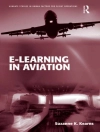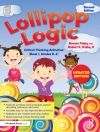Museums are institutions of both education and learning in service of society, that is, they are sites where educational experiences are designed and facilitated, and also places where visitors learn in broad and diverse ways. As such, the role of public education in museums today is highly important, if not at the centre of museum activity. As museums contemplate the growing significance of their educational roles and mandate within a changing society, so too they are increasingly in need of information about the audiences they serve and their own professional practice as they strive to achieve their educational missions in service to the communities in which they are embedded. Accordingly, this edited book focuses on informing, broadening and enhancing the pedagogy of museum education and the practices of museum educators. The chapters in this book report independent research studies conducted by the authors who have explored and investigated a variety of issues affecting museum education practice, contextualized across a range of institutions, including art galleries, natural and social history museums, anthropology museums, science centres, and gardens. These studies address a cross-section of contemporary issues confronting the field of museum education including studies of diverse audiences and their needs, the mediation of challenging topics, professional training, teaching and learning in informal settings, and reflective practice and praxis. Together these themes represent a set of topical issues germane to informing, broadening and enhancing educational practices in diverse museum settings, and will be of considerable interest to a broad spectrum of the museum and non-formal education fields.
Innehållsförteckning
Foreword.- Research Informing the Practice of Museum Educators: Diverse Audiences, Challenging Topics, and Reflective Praxis.- Acknowledgments.- Section 1: Introduction: Museum Educators Supporting Diverse Audiences: Parents, Teenagers and Family Groups.- Home Educators Views of Museums: Challenges and Opportunities of Supporting Non-Traditional Learning.- On Our Own: Family Experiences in Art Museums Outside of Facilitated Programming.- Parents Perspectives about Exhibit Label Content in a Science Museum.- Sparks of Learning: Insights from an After-School Science Museum Program for Teenagers.- Section 2: Introduction: Museum Educators Practice: Challenging Topics and Unique Audiences.- Navigating Sensitive Topics with Children: An Inquiry of Museum Educators Facilitating Conversations about Death with Children.- Childrens Attitudes toward Specimens at the Beaty Biodiversity Museum.- Museums and Marginalized Historical Narratives: Learning the Truth about Indian Residential Schools at the UBC Museum of Anthropology.- Training Scientists to Communicate Science to the Public in a Science Museum Setting.- Identification of Potential Methods of Professional Support for Museum Educators Working with Young Children with Cognitive Disabilities in Museums.- Section 3: Introduction: Museum Educators Praxis: Learning through Ones Own Reflexive Research.- Representing Other: Finding Reflections of Myself from a Space In-Between a Garden and a Museum.- Using Informal Learning Spaces to Increase Meaning-Making: Museum Visits with Young Adults.- Embodied Tensions: Digging into Agriculture at the BC Farm Museum.- Ecologies of Youth Art Apprenticeship: A Case Study of the Burnaby Art Gallerys Artist Apprenticeship Project.- Creating Meaningful Experiences in Art Museums: A Study of Museum Educators Perceptions of Meaningful Engagement with Works of Art.- Contributors.- Index.












